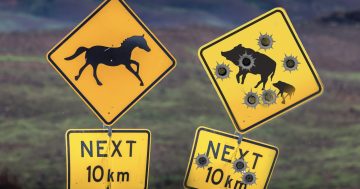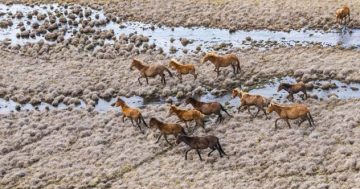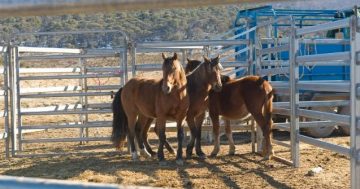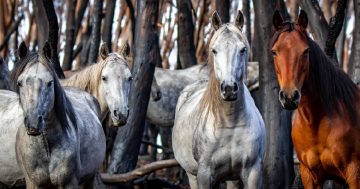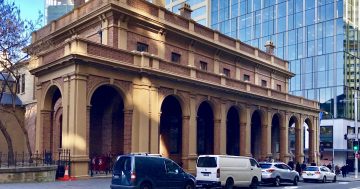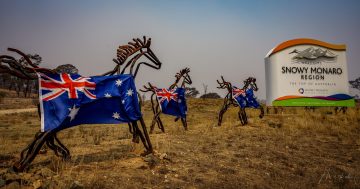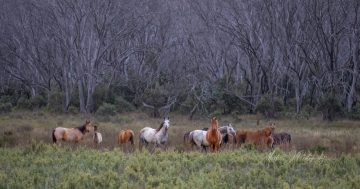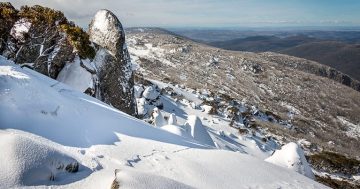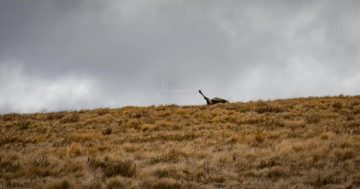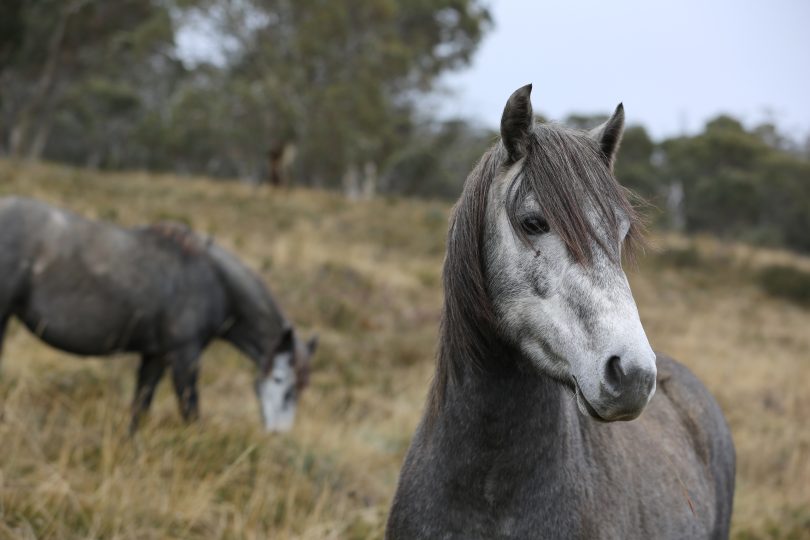
Brumbies at Currango Plains in the Kosciuszko National Park, May 2018. Photo: Supplied by John Barilaro’s office.
The long-awaited Kosciuszko Wild Horse Community Advisory Panel has been announced, as the NSW Environment Minister restarts the brumby rehoming scheme.
NSW Deputy Premier John Barilaro and NSW Environment Minister Matt Kean made the announcement saying it was the next step in addressing the number of brumbies in Kosciuszko National Park.
“I’ve long been advocating for a balance between recognising the heritage and cultural significance of the brumbies, while enabling active management to reduce their impact on the National Park’s alpine environment,” Mr Barilaro says.
“The appointment of the Kosciuszko Wild Horse Community Advisory Panel means we can get on with the job.
“I’m thrilled to announce that Tim Johnson has been appointed Chair. He will directly update the NSW Government and the National Parks and Wildlife Service on the work of the panel and progress within the Kosciuszko National Park.
“Mr Johnson is the man for the job – a nominated representative of the Snowy Horse Riders Association and he was integral in forming the National Heritage Listing over the Australian Alps.
“Wild brumbies have been roaming the Australian Alps for almost 200 years and are part of the cultural fabric and folklore of the high country.
“This management plan is the best way forward to manage both the brumby population and the ecological protection of the National Park.”
Mr Kean, who made a point of calling brumbies – “feral horses” in parliament last month says he is delighted to have the chief scientist Professor Hugh Durrant-Whyte appointed as the Deputy Chair of the panel.
“I very much look forward to working with the panel to reduce the damage the horses are having in this beautiful and iconic park,” Mr Kean says.
“I will take a science based approach on this issue. I want to make sure we get the best result for our natural environment.
“I have also asked my Department to recommence the rehoming program. This will start from next week, with the first horses to be removed within 4-6 weeks.
“This will be the first time in two years that horses have been removed from the Park.”
The Kosciuszko Wild Horse Community Advisory Panel includes:
• Tim Johnson (Chair)
• Professor Hugh Durrant-Whyte (Deputy Chair and Minister’s representative)
• Edward Rowley
• Leisa Caldwell (local community representative)
• Rhonda Casey (Aboriginal community representative)
• Cameron Ellison
• Colleen O’Brien
• Leon Meyer
The Committees’ work will be informed by a survey of the horse population in Kosciuszko National Park, which is currently being finalised.
At the About Regional candidates forum in Jindabyne prior to the March State Election, Mr Barilaro told those gathered that the Brumby advisory panel would include a broader range of views and stakeholders than have been canvased before.
Region Media has asked a number of times for more information about the panel members but those details have so far not been made available.
At the same event, Mr Barilaro also said, “we get on with the plan of management once the advisory committee is assembled and then we get on with the reduction immediately – to try and aim for 50 per cent reduction.”
At the time, Mr Barilaro pointed to around 600 horses being allowed to remain in less sensitive areas of the national park under the Government’s approach, “like Labor and the scientists who agree with about 600 horses.”
The comments from Mr Barilaro have since been met with scepticism by Kosciuszko advocates.
A 10,000 signature petition from Reclaim Kosci was presented to parliament last month. Those who’ve signed are calling for the Wild Horses Heritage Act to be overturned.
Also known as the Brumby Bill, the legislation was championed by Mr Barilaro as the Member for Monaro. The Bill enforces recognition of the cultural significance of these exotic High Country inhabitants in any future management strategies.
“Feral horse numbers in Kosciuszko National Park have been allowed to explode under the direction of NSW Deputy Premier John Barilaro,” Invasive Species Council CEO Andrew Cox says.
The plan to restart horse trapping and rehoming of wild horses doesn’t go far enough according to Mr Cox.
He says there has been no feral horse trapping in the park since August 2017.
“The latest plan is too little too late. Trapping and rehoming on its own will not stop the horse population from growing. The NSW Government needs to urgently remove large numbers of horses.
“Prior to the March state election, Deputy Premier Barilaro promised an ‘immediate’ 50 per cent reduction of horse numbers in the park. We are still waiting.”
The Invasive Species Council joined conservation groups in November in calling for a boycott of the NSW Government’s call for nominations for the Wild Horse Community Advisory Panel.
Mr Cox believes the panel will value introduced feral horses over the best interests of Kosciuszko National Park and its native wildlife.
Original Article published by Ian Campbell on About Regional.












